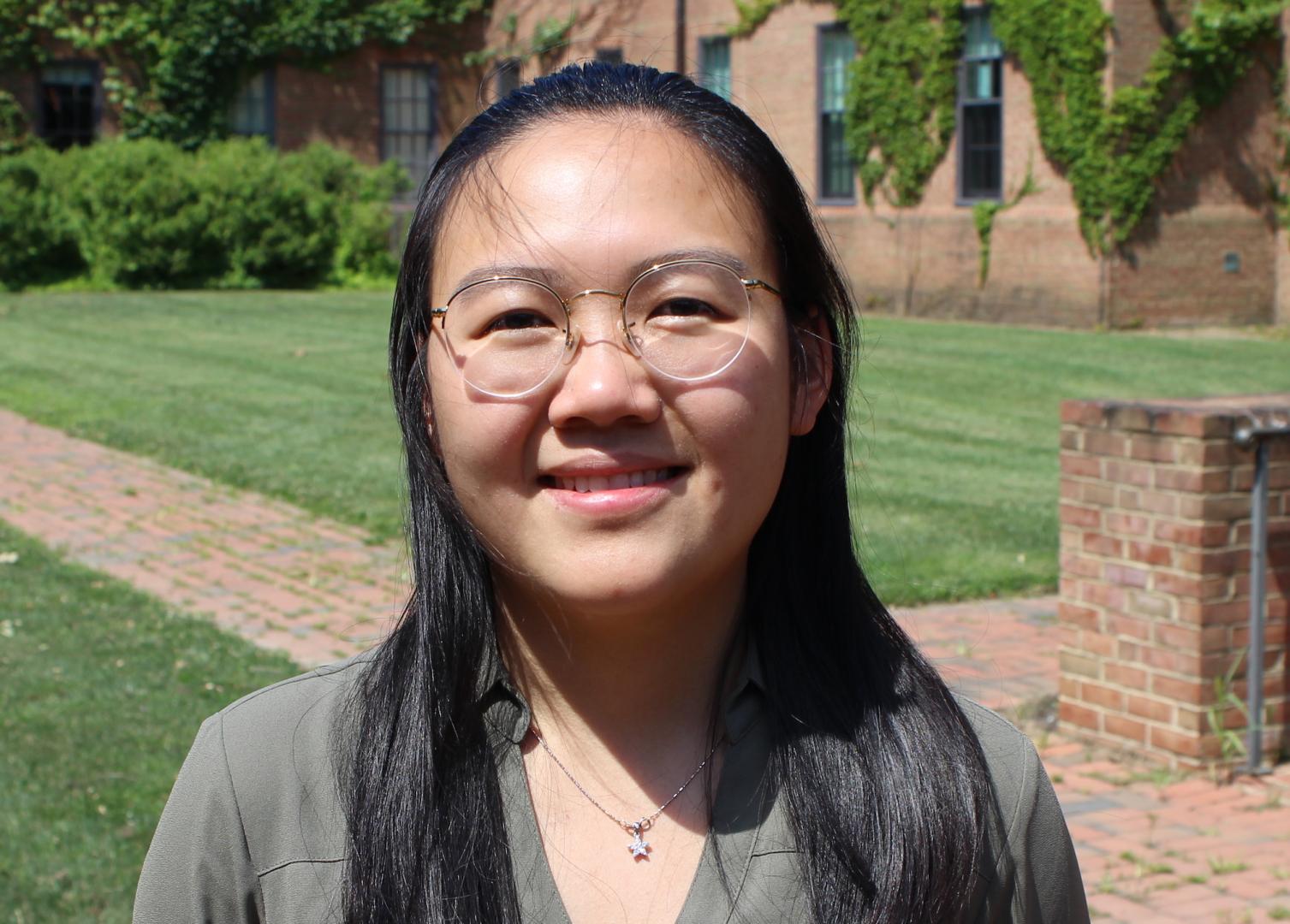Student Nhu Chau ’20 Researches the Elimination of Side Effects for Treatment of Parkinson Disease Michael Bruckler July 01, 2019 - 9:04 am
July 01, 2019

St. Mary’s College’s annual St. Mary’s Undergraduate Research Fellowship (SURF) program provides students opportunities to engage deeply in independent research, laboratory, and creative work across disciplines, under the guidance and with the expertise of faculty mentors.
Titled “Encapsulating L-dopa with Nanoparticles,” Nhu Chau ’20, biochemistry and biology major, focused on making a nanoparticle that entraps Levodopa (L-dopa), which is the most common treatment for Parkinson disease (PD).
L-dopa has side effects including nausea, vomiting, low blood pressure, restlessness, even hallucinations and delusions, because L-dopa increases the synthesis of dopamine in all dopamine-producing cells, causing a major dopamine increase throughout the brain.
Chau’s research focused on developing a methodology to synthesize Poly (lactic-co-glycolic acid) (PLGA) nanoparticles to entrap L-dopa with a high percent of efficiency. Her project is a “proof of concept” with the ultimate therapeutic goal of creating a technology that can be used to deliver L-dopa directly to the dopamine neurons that are affected by PD, thus reducing or eliminating the side effects associated with systemically-administered L-dopa.
Chau worked under the guidance of faculty-mentor Torry Scott Dennis, assistant professor of psychology and neuroscience. According to Chau, “Dennis was an awesome mentor. He was always there to give me advice and suggestions to solve the problems that occurred during the experiment. We had productive conversations about the project’s next steps and his support and trust in whatever I decided to do for the project helped make me more independent, confident and allowed me to grow as a scientist.”
After St. Mary’s College, Chau plans to study pharmaceutical science in graduate school to continue to develop a methodology to make a more efficiently delivered drug.
[ This article originally appeared here ]
July 01, 2019
St. Mary’s College’s annual St. Mary’s Undergraduate Research Fellowship (SURF) program provides students opportunities to engage deeply in independent research, laboratory, and creative work across disciplines, under the guidance and with the expertise of faculty mentors.
Titled “Encapsulating L-dopa with Nanoparticles,” Nhu Chau ’20, biochemistry and biology major, focused on making a nanoparticle that entraps Levodopa (L-dopa), which is the most common treatment for Parkinson disease (PD).
L-dopa has side effects including nausea, vomiting, low blood pressure, restlessness, even hallucinations and delusions, because L-dopa increases the synthesis of dopamine in all dopamine-producing cells, causing a major dopamine increase throughout the brain.
Chau’s research focused on developing a methodology to synthesize Poly (lactic-co-glycolic acid) (PLGA) nanoparticles to entrap L-dopa with a high percent of efficiency. Her project is a “proof of concept” with the ultimate therapeutic goal of creating a technology that can be used to deliver L-dopa directly to the dopamine neurons that are affected by PD, thus reducing or eliminating the side effects associated with systemically-administered L-dopa.
Chau worked under the guidance of faculty-mentor Torry Scott Dennis, assistant professor of psychology and neuroscience. According to Chau, “Dennis was an awesome mentor. He was always there to give me advice and suggestions to solve the problems that occurred during the experiment. We had productive conversations about the project’s next steps and his support and trust in whatever I decided to do for the project helped make me more independent, confident and allowed me to grow as a scientist.”
After St. Mary’s College, Chau plans to study pharmaceutical science in graduate school to continue to develop a methodology to make a more efficiently delivered drug.
[ This article originally appeared here ]
